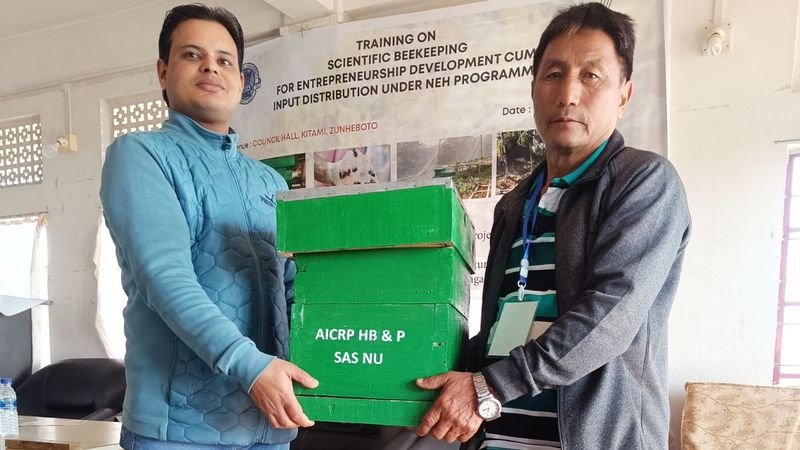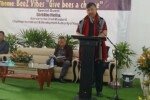HT Correspondent
DIMAPUR, Feb 11: The All India Coordinated Research Project on Honeybees and Pollinators (AICRP-HB&P), ICAR, School of Agricultural Sciences, Nagaland University, Medziphema, organized a one-day training on scientific beekeeping for entrepreneurship development-cum-input distribution at Kitami Village in Zunheboto district.
Nagaland is the first state in the country to have an independent apiculture undertaking when it launched the Nagaland Beekeeping and Honey Mission in October, 2007, to promote sustainable livelihood opportunities through beekeeping in the state. The state observes the Nagaland Honey Bee Day on December 5.
According to a release on Sunday, the training, conducted on Saturday, covered topics on beekeeping equipments where the importance of scientific bee box and other equipment in rearing of apis cerana and stingless bees were discussed. The bee farmers were enlightened on the benefits of using scientific bee boxes over traditional ones.
During the training, the bee farmers were trained on bee biology, life cycle of honey bees, their management during different seasons, bee diseases and pests, queen rearing, different products of honeybees, quality management of honey, wax, pollen, bee venom, royal jelly and propolis while underlining the need for the value addition of honey and other bee products.
The farmers were also sensitised on the role of bees as important pollinators and their vital role in increasing the production of fruits, vegetables and other crops including oilseeds like mustard and sunflower.
The training was attended by more than 75 farmers from Kitami and nearby villages under Pughoboto subdivision of Zunheboto district.
The training concluded with ‘experience remark’ from various beekeepers followed by free distribution of bee boxes to all the trainees.
The training was sponsored by the AICRP-HP under the North Easter Hill Region programme of ICAR, New Delhi.












